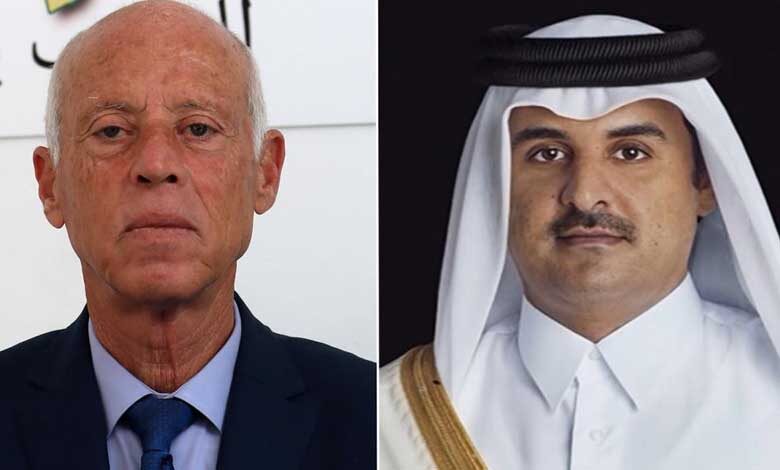Tunisian President’s bold decisions irritate Qatar.. Why?
Political analysts: Qais Said's decisions change Qatar's mood towards him

Tunisians of all persuasions lived through a long night after President kais Saied made a series of crucial decisions on the future of the political process in Tunisia during a meeting chaired by the military and security chiefs.
The presidential decisions included the exemption of Hisham Al-Machaichi from the premiership, the freezing of all the powers of the Tunisian parliament, the lifting of the immunity of deputies, in addition to the assumption by the President of the Republic of executive power with the assistance of a Prime Minister who will be appointed by him, and that the President of the Republic is responsible to the President of the Republic, and that the members of the government are appointed by the President of the Government on the proposal of the Head of Government. In addition, the Prime Minister will chair the Council of Ministers, because the Council of Ministers will be chaired by the President of the Republic.
In a video address, the Tunisian president said: Pursuant to the provisions of the Constitution, he has taken the measures required by this situation to save Tunisia, the Tunisian State and Tunisian society… A number of decisions have been taken that will be implemented immediately, he said, stressing that there is no room for anyone to tamper with the state and its capabilities, tamper with lives and money, and act in the Tunisian state as its own property. At the end of the presidential meeting, Said confirmed that all decisions will be issued in the form of decrees as stipulated in the constitution, and that the aim of this is to restore social peace and rescue the state and society.
Observers say that these decisions reflect a change in Qatar’s mood towards kais Saied, after it received him on a previous visit and lavished him with promises of support, and honored him with the establishment of an international association of constitutional law scholars, assigning him the presidency of which is to hold its first annual conference in Tunis in November this year.
Observers point out that the reception of President Said in Doha was aimed at calming his disagreement with Ennahdha and its president, Rached Ghannouchi, and that Qatar had worked to build an alliance between the two parties. When Kais Saied continued to deliver his scathing criticism of Ennahdha, Ghannouchi, and the Islamist-controlled government, Qatar reviewed its position and stopped all its promises.
Saied had visited Egypt during which he made strong statements against political Islam, particularly by singling out the Muslim Brotherhood’s political arm, the Union of Muslim Scholars, which Qatar hosts.
Speaking at al-Zaytunah Mosque a day after his visit to Cairo, he said that the Coran was addressed to Muslims, not to Islamists, nor to the Association of the Muslim Scholars Union, in a clear connection to the uproar that was raised about his visit to Egypt, which sought to betray him and link him with a regional agenda of escalation with Islamists.
What sparked the anger was Egyptian President Abdel Fattah al-Sissi’s talk of “Egyptian-Tunisian cooperation to dry up the sources of financing terrorism and confront extremist ideology, and the need to strengthen ways to combat terrorism in all its aspects, which is understood to mean the Muslim Brotherhood and its various branches in the region.”
On the sidelines of Ghannouchi’s recent visit to Doha, a rumor was circulated alleging that kais Saied refused to receive Qatari support, on the condition that this be after the resignation of the government of Hisham al-Mashaichi.












